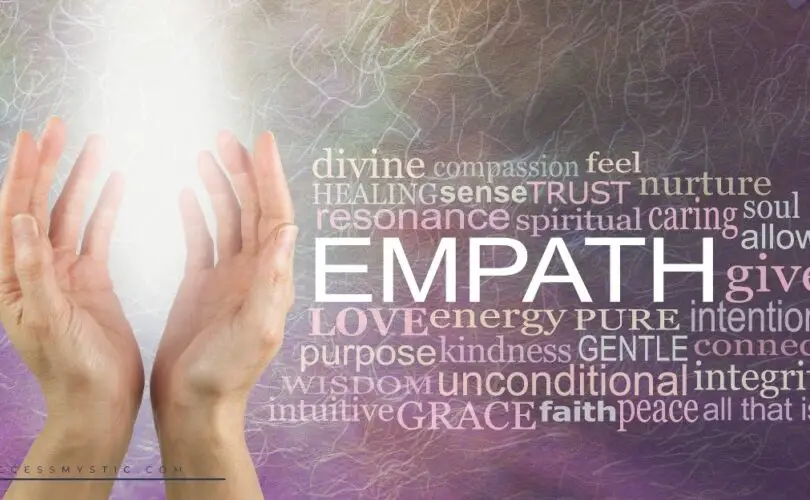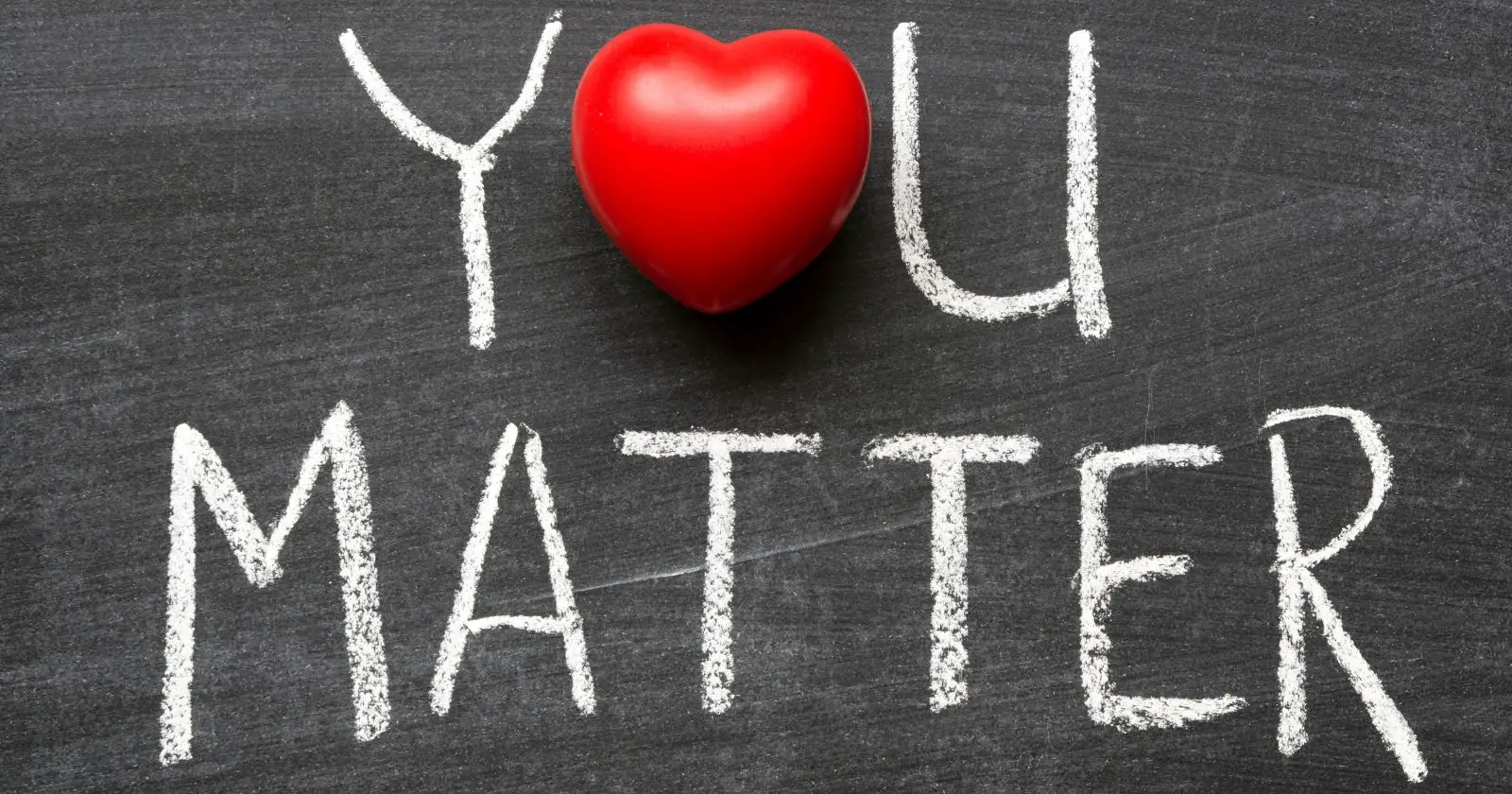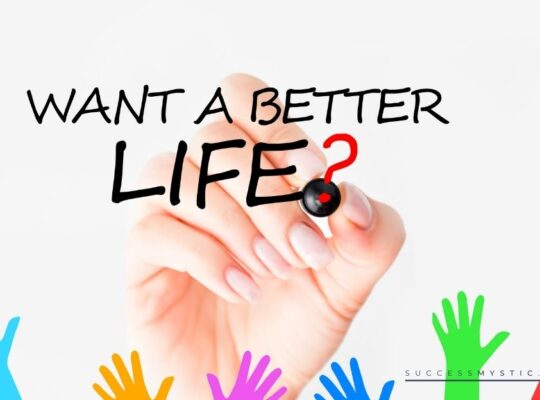In this article: Learn how empathy can deepen your relationships and improve your wellbeing… a must read complete guide every empath must read.
Empathy!
What is it?
It’s the ability to understand emotionally, what others are feeling. It allows you to see events, circumstances, and life from their perspective and it helps you put yourself in their shoes. Basically, it’s the ability to place yourself in their position to recognize their feelings and perspective.
When you see others suffering, empathy helps you envision what they’re going through to offer sympathy for their situation.
Related: Identify your own feelings and develop empathy…
You, like the majority of people, are probably fairly attuned to your emotions and feelings. It’s not as easy to get into that headspace for other people. The ability to empathize with others is the living embodiment of the saying ‘try walking a mile in my shoes’. It allows you to understand what other people may be experiencing emotionally during a stressful or distressing time.
Unfortunately, a lot of people respond with indifference when they see others suffering or in pain. In fact, some people respond with outright hostility. For example, the way people look down on a homeless person with no clue as to how they found themselves in that position.
Or someone’s absolute inability to empathize with someone going through a mental health problem until they themselves experience a blip in their own mental health. The point is a lot of people simply do not possess empathy and empathy is not the universal response from humans when faced with the suffering of others.
Related: Empathy: The language of being human…
“The functions of intellect are insufficient without courage, love, friendship, compassion, and empathy.”
~ Dean Koontz
The Signs of Empathy
Are you an empathetic person? Let’s find out, here are some of the signs of empathy. If you can confidently tick each of these, then there’s a good sign you possess empathy or that you possess the necessary traits to build your empathy.
- You are an active listener.
- People are drawn to you and share their problems with you.
- You pick up on nonverbal cues and recognize when someone is off.
- You think about how others are feeling.
- People seek you out for advice.
- Tragic events overwhelm you.
- When you see suffering, you try to help.
- You recognize when people are being dishonest.
- When you’re in social situations, you often walk away feeling drained.
- When it comes to others, you care deeply.
- You struggle with setting boundaries with others.
Related: 10 Signs to detect if you are or not an empathetic person…
The Different Types of Empathy
When you possess empathy, you are a person who is concerned for both the happiness and wellbeing of others, whether you know them or not.
1| Affective
This type of empathy involves understanding someone else’s emotions and having the ability to respond appropriately. This type of emotional understanding generally means you are concerned for the well-being of others.
2| Somatic
This type of empathy involves a physical reaction. You have a physical response to the trauma, distress, or difficulty that someone else is going through. You may experience physical reactions similar to the ones that the person themselves feel.
For example, you might experience secondhand embarrassment when someone is being humiliated or reacts with embarrassment to an uncomfortable moment. You may even blush alongside them with an upset stomach as well.
3| Cognitive
This type of empathy involves the ability to understand someone else’s mental state in reaction to the situation or distress they are experiencing. Psychologists would refer to this as the theory of mind, you have the ability to recognize what people are thinking, or at least think about what others may be thinking. [ref.]
Compassion and sympathy are both related to empathy, however, there are differences. Sympathy and compassion are passive, whereas empathy is active.
Empathetic people take an active role in attempting to understand what others are going through or experiencing.
Related: What is Cognitive, Emotional and Compassionate Empathy…
Empathy: Cognitive Versus Emotional
What we know from the annals of history is that humans are more than capable of being selfish. Worse, we are capable of cruelty. If you pay enough attention to the news, there is no shortage of humans being terrible to humans.
Luckily, we’re not all that way and one of the reasons for this is empathy. Our ability to feel the pain another goes through and to extend kindness rather than taking advantage of their low point.
Related: How much of an impact empathy can have on a culture of hate…
There are a series of benefits to empathy.
1| Social Connections
This is perhaps the most obvious benefit, when you are an empathetic person you have a much easier time building your social connections. People like to spend time with people who understand them.
They enjoy friendships with people who listen and consider how they are thinking or feeling. When you know how to appropriately respond in social situations, you have an easier time building social connections. So, not only will you build lasting friendships, but you will also enjoy the psychological and physical wellbeing that comes from those social connections.
2| Emotional Regulation
By learning how to empathize with others, you learn to regulate your emotions. What does that matter? Well, emotional regulation is imperative to managing your emotions and feelings when you are in stressful situations. Emotional regulation is the key to managing stress and avoiding burnout and feelings of overwhelm.
3| Helpful Behavior
When you practice empathy, you become more likely to practice helping behavior. It isn’t a one-way street either. If you are helpful when you feel empathetic, then others will be more likely to return the favor when being empathetic with you.
4| Survival
This one might surprise you, but it will make perfect sense in just a moment. Empathy allows you to read people more clearly. So, when you see someone waving and screaming for you to follow them, you recognize there is danger and you follow.
When you’re in a face-to-face conversation and someone’s attention drifts beyond your shoulder and you see a change in their face, you recognize the fear and tune-in. The physical response is an unconscious one, as is the mental alertness that comes with it.
You might not immediately understand the situation, but you know something is going on and you start keying in more to ensure your survival, whether it’s a volcano eruption, a swarm of killer bees, or just a wave about to wipe you out as you stand on the beach.
5| Stress Busting
With empathy comes the ability to manage stress more effectively. The ability to regulate our emotions is closely related to our ability to positively relate to others. Emotional regulation is the ability to put yourself in other’s shoes, to experience others’ experiences without being overwhelmed by it. This is a skill key to de-stressing.
Stress can be the result of a variety of different things, but in all cases of stress, it is down to an abundance of the stress hormone cortisol. Your body pumps up the response and gets you ready for action. That’s great for immediate danger, but when it persists for a length of time it’s unhealthy.
When you engage fully in empathy you build the skills necessary to regulate your emotions and avoid that level of stress. You gain control over the emotions with the potential for stress.
6| The Burn-Out Antidote
One of the biggest risks in modern society is burn-out. Feeling overwhelmed is nothing new, the inability to focus is growing in regularity. When you lose interest in hobbies, activities, and work you may experience a build-up of frustration, anger, and depression. It may result in you feeling miserable at work, but when you get home, you’re too exhausted to indulge in activities you enjoy. It’s terrible for your health.
The higher your empathy skills, the less likely you are to experience burn-out. When you build your empathy, you build your skill at managing difficult situations, you become a more effective communicator, you find it easier to relate to others, and you yourself feel as though you are better understood. Put all of that together and you are burn-out proofing yourself!
7| Your Moral Compass
Everyone has a moral compass, it’s just that some people have a poor moral code of conduct. That’s where empathy comes in. With empathy, you treat others how you would expect to be treated. There’s a basic level of human respect extended to everyone immediately.
Your code of conduct might be a set of rules that protects you from bad actors, it helps keep you safe, and it may prompt you to look after people who are less fortunate. In fact, if you are an empathetic person, then it is your empathy that will guide your code of conduct, thus calibrating your moral compass. The foundation of your moral behavior encourages you to build healthy communities and to extend kindness to others.
The Impact of Empathy
The reality of empathy is that not everyone will experience it in every situation. Firstly, some people are naturally empathetic. Secondly, some people are automatically more empathetic to certain people or situations versus others.
For example, Patrice might be more empathetic to people who are going through a situation that she herself has dealt with. While Mark tends to reserve his empathy for people, he believes deserve it.
There are a few different factors that play into this, including:
- One’s perception of another person.
- How you attribute the behaviors of others.
- What type of blame you deem can be attributed to a person’s predicament.
- Your past experience.
- Your personal expectations.
It’s a bit like victimhood. A good example would be the way in which rape victims are painted – what was she wearing? Why was she walking alone at night? She shouldn’t have had so much to drink. This is conditional empathy because the victim isn’t a perfect victim they are no longer deserving of empathy. This is an extreme example, however, it is one of the most common narratives we see when discussing sex crimes.
Interestingly, researchers have found slight differences in how the different sexes experience and express empathy. The findings are, of course, mixed, however, women typically possess more empathy and are more likely to possess cognitive empathy when compared to men. [ref.]
There appears to be two big factors that influence our ability to empathize – socialization and genetics. It literally boils down to nature or nurture. Your parents’ genes contribute to your overall personality, which includes your tendency for compassion, sympathy, and empathy. You’re also influenced by your peers, society, community, and parents. So, if from a young age you see empathy in action, then you are more likely to be an empathetic person than someone who does not see this role-modeled. How you treat the people around you is a reflection of the values and beliefs that are instilled from a young age.
The Barrier To Empathy
There are a variety of reasons why someone might not possess empathy or lacks it at the very least.
1| Cognitive Bias
Sometimes, your world view is influenced by your cognitive biases. For example, some people view physical illness as a weakness. Others view mental illness as a character flaw. Some people attribute failure to personal shortcomings. Others view mistakes as a lack of character.
These cognitive biases have a direct impact on one’s level of empathy. It’s difficult to muster empathy for someone when you simply write it off as their own shortcoming, failure, or defect. These types of biases make it extremely difficult to consider all of the factors contributing to someone’s situation. They make you less likely to see the situation from the perspective of the person experiencing the issue.
2| Dehumanization
Some people fall prey to another trap – the trap of believing that people different from them don’t behave or feel the same emotions they do. This is a common refrain when asked to feel empathy for physically distant people.
For example, when you watch the news and see a war raging thousands of miles away, it’s difficult to feel empathy for the innocent civilians being caught up in the disaster. Whether it’s because they hold different religious views, or speak a different language, or are a different race. Some people struggle to empathize with people inherently different because we tend to dehumanize people different from us.
Or, in the event of a natural disaster or a plane crash abroad, most news outlets focus on the dead citizens from the country in which they report. For example, the Malaysian Airlines flight that disappeared en route to Beijing from Kuala Lumpur was a jarring news report.
In America, news reports highlighted the fact that three Americans were on board. It’s natural to focus on those people because they want you to feel empathy and it’s easier to feel empathy for people you recognize as being the same as you.
Related: How to put yourself in their shoes – skills of empathy…
3| Victim-Blaming
We briefly touched on the victim-blaming aspect earlier, but let’s dig into this deeper. When someone goes through a terrible event, experience, or situation, we often make the mistake of victim-blaming. This is something that we do unconsciously.
It’s the reason why victims of crime are asked what they could have done to avoid being the victim of a crime. Or encouraged to do or behave in certain ways going forward to avoid being re-victimized.
Why do we do this? This typically stems from people’s need to believe that the world we live in is fair and just. Though, a quick glance around the world shows that this world is nothing of the sort. People would like to believe that people get what they deserve or that they deserve exactly what they get.
They convince themselves that these terrible things couldn’t happen to them so that person must be deserving of the situation that befell them.
Related: Stop talking about empathy – Start acting on it…
How To Build Your Empathy
Is empathy something you can learn or be taught? Well, from the discussion above noting that empathy is the result of a combination of nature and nurture, the answer is yes, it can be taught/learned. If you recognize that empathy is something that you struggle with, then it’s something you can work on. We’re hard-wired to be empathetic.
The reason for this could be explained by mirror neurons. These mirror neurons are brain cells that create bodily sensations that mirror what someone else is doing (ref.). For example, if you commonly watch sports, then you probably know that you try to use your body to will your team to shoot better, run faster, or hit harder. Your mirror neurons are unconsciously pushing you to lean forward as you mentally will the quarterback to slip out of the pocket and make a mad dash for the 1st down. It’s a copycat motion and it’s entirely involuntary.
Now that we’ve explained mirror neurons, understand that they are not limited to your physical movements, it’s also what allows you to experience the emotions, thoughts, or feelings that you observe in others.
The problem is your hard wiring doesn’t always take the lead in these situations. So, when you called your boss to ask for time off due to bereavement and they reacted in astonishment that you might need time away from work to grieve, that’s someone who has overridden their empathy or just cast it aside as something that doesn’t serve them. Luckily, you can build your levels of empathy and we’re going to highlight exactly how.
1| Pay Attention
Your mirror neurons aren’t going to kick in if you don’t observe others’ emotional states. You have to be engaged with others for you to pick up on what they might be feeling. In terms of how others convey their emotions, you have to pay attention to body language, facial expressions, and other nonverbal cues as well as the words they are using.
If you aren’t present, it’s because you’re trying to multi-task, your own thoughts are distracting you, or you just don’t care enough to make eye contact when communicating with others. You will miss a lot of vital clues if you aren’t fully engaged when communicating with others.
To practice this, watch a drama or a soap opera with the television muted. Try to pick up on their emotions based only on the facial expressions and body language they exhibit in each scene.
2| Humility
One thing you may have noticed about the people in your life who lack empathy is their lack of humility. As far as they are concerned, there is only one way to handle a situation, that’s the correct way, and it just so happens to be the way that they would approach and handle a situation.
For example, a teacher who lacks empathy may not understand why a student is sad and lethargic the day after their hamster died. Or a manager who struggles to understand the sorrow associated with someone having to re-home their cat. It’s just a cat.
That’s the manager’s opinion. However, for the employee, that cat has been a loyal member of the family, it’s possible that their cat was a source of solace. It’s the workmate who just cannot relate to their co-worker who is deeply stunned by the sudden death of someone they have been dating because they only knew each other for a month or two.
They complain about the person being given time off because they were barely dating, but grief is very real, no matter how long a couple is together. Someone still died and it was someone close to them.
You can overcome this by understanding we all come from different backgrounds, and with different backgrounds come a wealth of different perspectives and experiences. We value different things, we have different moral codes and values. It’s likely that we all have different opinions on what is right for us. The only way to understand where someone else is coming from is to sit down and listen to their perspective.
3| Role-play
It’s possible that you are, in fact, an empathetic person, but you’re just not all that great at expressing it. One way you can improve on your expression of empathy is through role-play situations.
So, enlist a close, trusted friend and start practicing. Not only will you become more aware of your own tone of voice, body language, and facial expressions, you will also get better at picking up those nonverbal cues in others. Sometimes, our nonverbal cues communicate to others that you don’t really care. Role-play will help you eradicate these bad habits and ensure you make eye contact, add warmth to your tone, and improve your posture while communicating.
4| Imagination
You likely find it easy enough to sympathize with someone who is experiencing something that you have also experienced. Where people tend to struggle is when they’re in a situation that is entirely different or unfamiliar to anything you have gone through. This is where your imagination comes into play. For example, you might not personally have experienced a miscarriage, but that doesn’t mean you are unable to empathize with a friend who is going through the grief related to a miscarriage.
You can expand your mind and improve your imagination through reading. By trying to identify with the emotions that each character is experiencing, it helps you push yourself out of your comfort zone and become more cognizant of emotions, feelings, and situations outside of your realm of experience. This will help you be more proficient at identifying with others who are in need of empathy.
If you aren’t much of a reader, then all is not lost. You can opt for an audible book, which will also improve your ability to listen while also broadening your horizons. Alternatively, you can also watch television programs or movies that involve difficult storylines that force you to put yourself in someone else’s shoes.
There are also podcasts that can help highlight the personal stories of people who have experienced trauma, difficulty, or otherwise in their lives.
Seek out the perspective of people who have lived entirely different lives to you. We are often guilty of dismissing the stories of others because we can’t imagine living in a world where something like that could happen.
Yet, you do live in a world where something like that can happen, you just live in a different segment of the same world. We would encourage you to seek out those types of stories to get to grips with how different life can be for someone who grew up thousands of miles away or even six miles away.
Final Thoughts
People who possess high levels of empathy typically enjoy more satisfying relationships, while also having large(r) social circles. At the core of every in-depth, lasting relationship is understanding the intentions, perspectives, and needs of other people.
While there are a lot of factors that influence our health, happiness, and life, our ability to enjoy meaningful relationships is perhaps the biggest.
The deep connections that we build with others help us thrive. In bad times, our social network picks us up and provides support. In good times, our social network lifts us up and helps us celebrate success and happiness.
Your social network helps you battle stress, and it boosts your well-being. Therefore, the ability to build empathy is key to improving your mental and emotional health, as well as improving your life.
You can use your empathy skills to build better relationships and in turn, you will notice a difference in your ability to manage stress, regulate emotions, and your overall health and wellness.
Read more about empathy…







